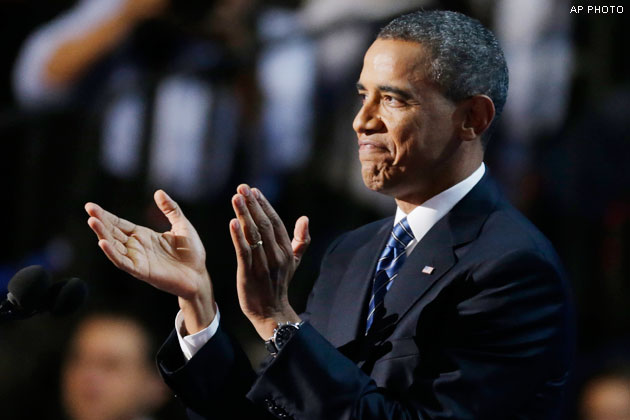
Washington, September 12: US President Barack Obama is the most admired foreign leader in India and a majority of city dwellers in the country want him re-elected, an opinion poll said on Monday.
"About seven-in-ten city dwellers (71 per cent) who say they are following the US election closely want US president Barack Obama to be re-elected," said Pew Global Research Center, releasing the results of its major opinion poll conducted in India.
The poll also found that Indians have more favorable view of America than other major powers.
A majority of Indians living in cities have a favorable view of the United States (58 per cent), a positive opinion of Americans (57 per cent) and confidence in Obama (60 per cent), it said.
"Such confidence in Obama is one likely reason a majority of city-dwelling Indians (57 per cent) back his international policies, approve his handling of global economic problems and say relations with the US have improved in recent years," it said.
"A majority of urban Indians (56 per cent would also like to see President Obama re-elected. Among those who say they are closely following the election, a 71 per cent-majority wants Obama to have four more years.
"The American president's support in Indian cities is roughly comparable among men and women and people of all ages. His backing is slightly stronger among urbanites with a college education or a higher income," Pew said.
Obama, in fact, is the most admired foreign leader in India.
"Far fewer have confidence in Russian President Vladimir Putin (35 per cent), Chinese President Hu Jintao (22 per cent) and German Chancellor Angela Merkel (20 per cent).
The low ratings of Merkel and Hu, at least, are likely tied to the fact that about half are unfamiliar with either leader," it said.
According to the Pew survey, Indians in cities are also generally supportive of the exercise of US power, both hard and soft. They broadly favour (73 per cent) American-led efforts to fight terrorism and a plurality (48 per cent) backs US drone strikes targeting extremists in countries such as Pakistan, Yemen and Somalia.
Most of them (69 per cent) also admire US scientific and technological advances, with college-educated, urban Indians being particular fans.





Comments
I'm gone to inform my little brother, that he should also pay
a quick visit this weblog on regular basis to take updated from most
up-to-date reports.
Also visit my web page :: ranking suplementów na mase: http://goo.gl/VmAFcx
Add new comment